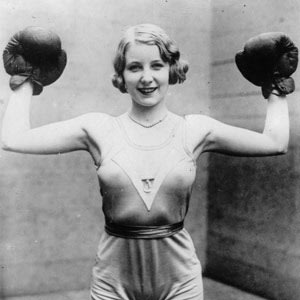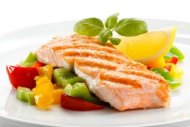Can you really change your metabolism?
The
good news is you can eat and exercise to increase your daily
calorie-burn dramatically. We've rounded up the health experts to tell
you what food and drink burns-off calories, and the simple changes you
can make every day to send that
metabolism sky high.
What exactly is metabolism?
"The term 'metabolism' is the
rate at which your body performs all of its functions. It's made-up of
three components; your basal metabolic rate, which is the amount of
energy you need for your body to function at rest, and burn calories
at-rest; physical activity level, the amount of energy required to
carry-out daily activities, and the thermogenic effect of food; the
amount of energy required to digest and absorb food," says Jennie
Cockcroft, Nutritional Director for
Purely Nutrition.
Eat breakfast
According to Samar Tarabay, a nutritionist from
Holland & Barrett ,
"your metabolism slows-down overnight, as no food is consumed for
around nine to 12 hours. When you skip breakfast, you signal your
metabolism to slow-down; your body thinks it needs to conserve energy as
food is in short supply. Breakfast kick-starts the metabolism,
reminding it to get moving. If you're skipping breakfast, your
metabolism continues to 'sleep' and not engage in fat-burning activities until you wake it up at lunchtime.'
Vitamins and minerals to give you a boost

"Increase
your intake of iodine, zinc and selenium for thyroid health, which
governs the metabolism. Calcium speeds up your metabolism, so try to
keep moving, as this encourages the lymph system to move faster,"
advises Jacquie Lane, Nutritional Therapist and Director of Studies at
the College of
Naturopathic Medicine.
Drink green tea
Green tea contains polyphenols called catechins, which aids liver
detox, thus enabling effective metabolism of fats and toxins. Green tea
also contains thermogenic which gives the metabolism a nudge to work
more effectively,' says Lane.
Go for a walk
Jump off the bus a step early or take the
stairs. According to Lane, you should "increase your walking daily, as
this really works."
Practise 'mindful eating'
Victoria Wills ,
wellbeing guru and hypnotherapist suggests using 'mindful eating' to
boost your metabolism. "Change your focus away from what you eat, to how
you eat. If you eat breakfast on-the-run, or eat lunch at your desk,
then make space for half an hour where your only focus is eating, rather
than a million things. It takes 20 minutes for your stomach to register
that it's full, so you really do need half an hour for your lunch
break. The digestive process starts when you look at and smell your
food, so you need to focus on your food rather than the PC, chew your
food thoroughly, and focus-on what you are eating."
Diet tips to boost your metabolism
Victoria Cleary Ford, dietary therapist for The
Pure Package says "variety is the key to a healthy diet, but in the mornings, it can
be easier to stick with routines. Eat porridge as it provides
wholegrain and fibre, with a teaspoon of ground linseeds, topped with
fresh fruit (vitamins) and a generous serving of organic, pro-biotic
yoghurt.
If you have time, a slice of rye bread, with scrambled
egg with added pro-biotic yoghurt rather than cream. And add fresh
tomatoes too.
A glass of fruit juice is a good source of vitamins
in the morning, however, it's high in fruit sugar which can cause blood
sugar spikes, so dilute with water. During the day snack on nuts and
seeds as they are a good source of protein and essential fatty acids,
essential for the body to run and burn fat."
Calorie-burning exercise
"The time of day you
exercise
doesn't have a significant impact on calorie burning. There isn't a
best time to work out. However, exercising in the morning helps to
kick-start your system and builds endorphin levels to help put you in a
good mood for the day. Around 6pm your muscle strength is at its peak
and therefore you're less likely to injure yourself. You're also more
alert at this time, as research tells us that body temperature and
hormones are higher in late afternoon, which means you may get slightly
better calorie-burning effect, " advises Steve Miller, lifestyle guru
and author of Get Off Your Arse And Lose Weight.
According to Cockcroft, "increasing the amount you exercise will
increase muscle-mass, and reduce fat mass. Increasing your body's muscle
mass automatically increases your
metabolism,
as muscle requires more calories to maintain than fat. Try resistance
training such as water aerobics or circuit training. During exercise,
our bodies use up glycogen stores, so make sure you eat
carbohydrate-rich food beforehand such as wholemeal pastas, bread and
potatoes."
Source:
Yahoo!



